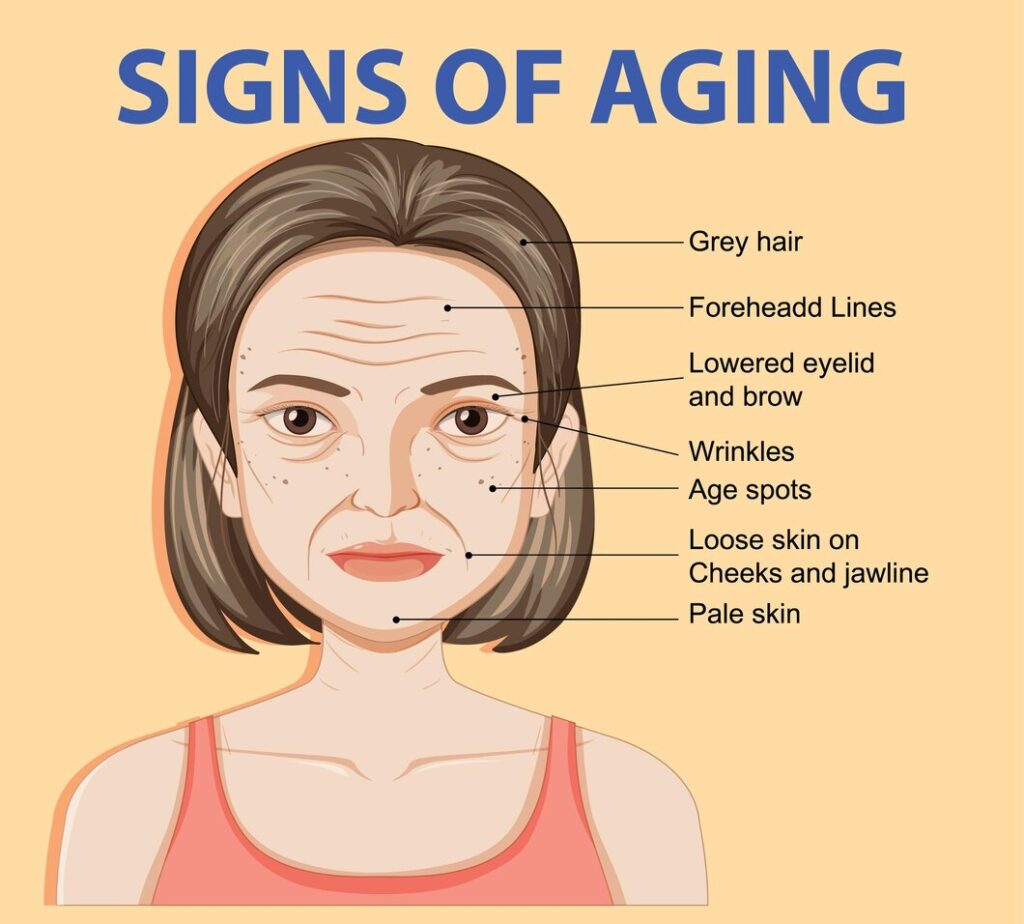In recent years, the field of anti-aging research has made remarkable strides, shifting focus from merely improving appearance to fundamentally altering the aging process itself. This article explores the exciting benefits of anti-aging interventions and their potential to extend both lifespan and healthspan. Some in-depth anti-aging blog/website like Ageless Buzz provides amazing tips on improving health and skin.
Understanding Aging and Longevity
Aging is a complex biological process characterized by the gradual decline of cellular and bodily functions over time. However, researchers in the field of life extension are challenging the notion that aging is an inevitable fate. By targeting key aspects of the aging process, scientists aim to not only increase lifespan but also extend healthspan – the period of life spent in good health.
Signs of Aging
Aging affects everyone differently, but these signs are typical as the body goes through natural changes over time.
5 Visible signs of aging and best way to combat.
- Skin changes: Wrinkles, fine lines, sagging skin, and age spots due to reduced collagen production and sun exposure.
- Gray or thinning hair: Hair may lose pigmentation and become thinner over time.
- Decreased muscle mass: Muscle strength and tone tend to diminish, leading to reduced physical performance.
- Joint stiffness: Arthritis or general stiffness in joints can develop due to wear and tear.
- Reduced mobility and balance: Aging can affect coordination, balance, and flexibility.

Key Benefits of Anti-Aging Interventions
- Extended Lifespan: The primary goal of anti-aging research is to increase human longevity. Interventions that target cellular senescence, telomere lengthening, and DNA repair mechanisms show promise in potentially extending the human lifespan.
- Improved Healthspan: Perhaps even more crucial than extending life is improving its quality. Anti-aging therapies aim to reduce age-related diseases and maintain physical and cognitive function well into advanced years.
- Enhanced Cellular Health: Many anti-aging strategies focus on improving mitochondrial health and boosting NAD+ levels, which can lead to increased energy production and better overall cellular function.
- Reduced Inflammation: Chronic inflammation is a hallmark of aging. Anti-aging interventions often target inflammation reduction, which can have wide-ranging benefits for overall health.
- Cognitive Preservation: Maintaining mental acuity is a key concern in aging. Some anti-aging therapies show potential in preserving cognitive function and possibly even reversing aspects of brain aging.
Promising Anti-Aging Strategies
Lifestyle Interventions
- Caloric Restriction and Intermittent Fasting: These dietary approaches have shown significant promise in animal studies for extending lifespan and improving various health markers.
- Exercise: Regular physical activity is one of the most effective “anti-aging” interventions, promoting cellular health, reducing inflammation, and improving overall longevity.
Emerging Therapies
- Senolytics: These compounds target and eliminate senescent cells, which accumulate with age and contribute to inflammation and tissue dysfunction.
- Stem Cell Therapies: The use of stem cells shows potential for rejuvenating tissues and organs, possibly reversing some aspects of aging.
- Epigenetic Reprogramming: Scientists are exploring ways to reset the epigenetic markers of aging, potentially reversing the biological age of cells and tissues.
Pharmacological Approaches
- Metformin: This diabetes drug has shown promise in potentially extending lifespan and reducing age-related diseases.
- Rapamycin: Originally an immunosuppressant, rapamycin has demonstrated life-extending properties in various animal studies.
- NAD+ Boosters: Compounds that increase levels of NAD+, a crucial molecule for cellular energy production, are being studied for their potential anti-aging effects.
The Future of Anti-Aging
As research progresses, we may see more personalized approaches to anti-aging, based on individual biomarkers of aging. The goal is not just to add years to life, but to add life to years, allowing people to remain healthy, active, and cognitively sharp well into advanced age.
While many of these interventions are still in research phases, the field of anti-aging and life extension holds immense promise. As our understanding of the aging process deepens, we move closer to a future where extended healthspan and lifespan may become a reality for many.
It’s important to note that while the potential benefits are exciting, anti-aging research is still evolving. Always consult with healthcare professionals before considering any anti-aging interventions or treatments.